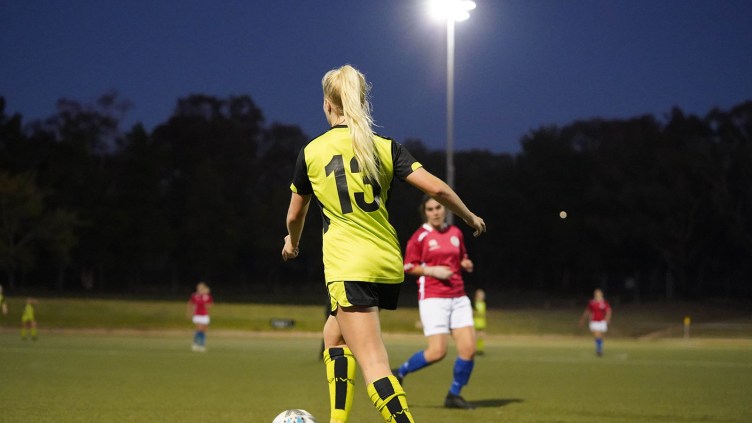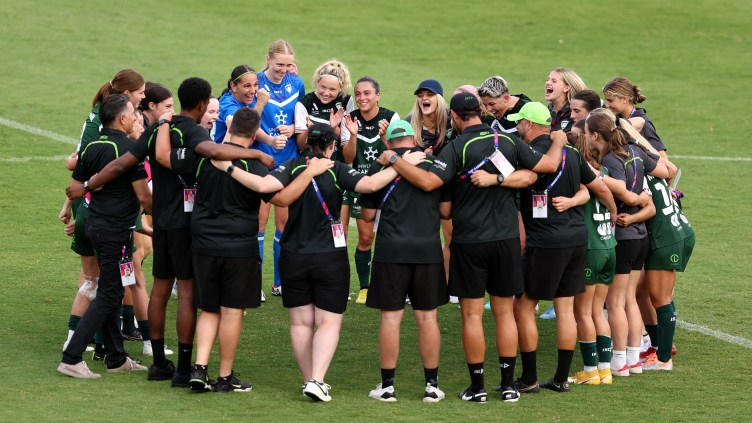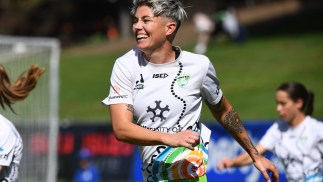The Canberra United Academy is working with UCRISE at the University of Canberra to undertake studies into the demands of training and competition matches of elite youth female football players.
With research showing that female athletes are more prone to specific injuries such as ACL injuries, the challenge for coaches and performance staff is to promote their development and performance without compromising non-football commitments all while lowering and managing injury risk.
UCRISE’s work with the Academy extends not only to undertaking research, but also to pricing Academy players with education sessions across topics such as recovery, nutrition and performance psychology.
UCRISE PhD Candidate and Sport Scientist Michael Sydney is facilitating the research, working alongside the Academy on matchdays and at training sessions to gather data and manage the players.
Sydney said that few studies have holistically investigated the demands of training and competition matches whilst also monitoring variables such as sleep, fatigue, mood, menstrual cycles, internal training and competition loads as well as external training and competition demands.
“This is why UCRISE at the University of Canberra is working with Canberra United to undertake these studies over the next two years,” he said.
“In order to gather this information players have been fitted with GPS units and Heart Rate Monitors which they wear every training session and competition match.
Furthermore, we ask the athletes their rate of perceived exertion after every training and competition matches in order to assess how difficult they thought the training or game was, helping provide insight into individual training adaptations.
“Away from the training fields, the athletes are required to fill out a daily wellbeing questionnaire which provides the performance staff and coaches with a daily snapshot of how well the athletes have slept, their mood, muscle soreness, fatigue levels as well as the ability to report any extra training sessions or injuries, niggles or illnesses they might be suffering.”
“We have also scheduled regular testing sessions where the athletes are required to complete Yo-Yo tests, 40m sprint tests using Light Gates as well as standard anthropometric tests such as height and weight to assess their seasonal growth.”
“All of this information is collated and reported to the Academy’s performance and coaching staff in order to aid in decision making regarding increases or decreases in training loads, mark performance improvements and give insight into how coaches can manipulate their sessions to hit pre-determined thresholds.”
“Not only we will be undertaking this research, but we will also be providing athletes with education sessions covering topics such as recovery, nutrition and performance psychology amongst many others.”
“It is also essential that we prepare the players for life after football, and because of that, the development of life skills is a huge component of this project.”
“It is a great time to be involved with female football.”
“Given the success of the Westfield Matildas and the legacy they are now building, it is vital that we further our understanding of how to monitor our athletes, particularly youth players, in both a club and representative environments.”
Last Thursday, Sydney hosted an informative session at the University of Canberra about the importance of sleep to athletes with a particular emphasis on association between increased injury risk and lack of sleep.
Players and parents were taught about the different stages of the sleep cycle, and the dangers posed by not getting adequate amounts of sleep and how that places athletes in a higher injury risk zone.





